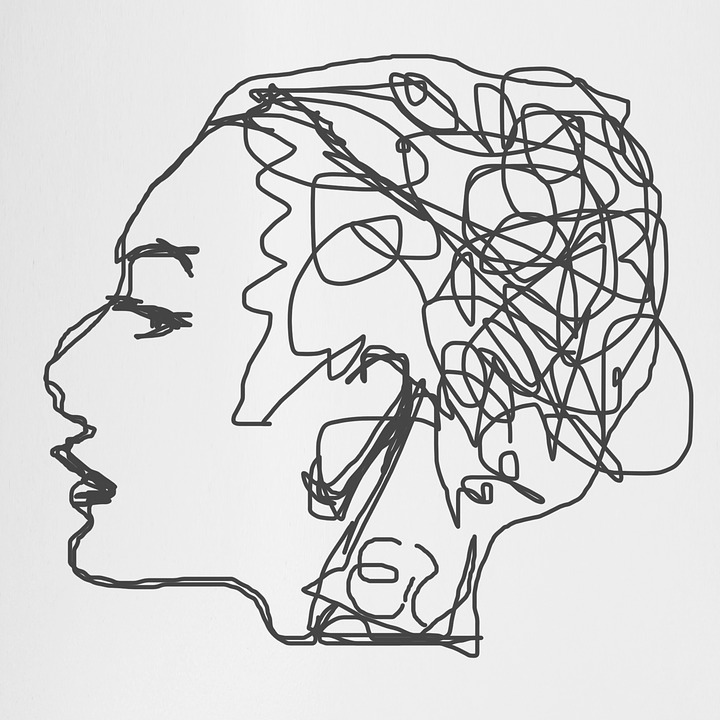
Alexandra Sarafoglou’s (Psychological Methods) question
Dear Arjen,
I often heard from friends who work as psychotherapists, that outside of university clinics there is an increasing disconnection between clinical researchers and clinical practitioners. Specifically, clinical researchers are often interested in developing and evaluating standardized therapies that target isolated psychological disorders. Often, however, psychotherapists do not follow the recommended guidelines. Instead, they adapt their therapeutic methods to specific characteristics of their patients, for instance when their patients require treatment for multiple mental health problems. I was wondering whether you agree with the assessment that there is a disconnection between clinical research and clinical practice and how clinical researchers can improve the exchange of information.
Alexandra
Arjen Noordhof’s (Clinical Psychology) answer
Dear Alexandra,
There is, indeed, a disconnection between university discourse and clinical practice. I don’t know if it is increasing, but every student can experience it vividly during an internship, which may invoke feelings of anxiety, impotence, guilt, shame and anger.
It cannot be avoided. There is a structural gap between scientific research and the daily practice of psychotherapy. I think we have to find ways to live in this gap rather than to close, deny or avoid it. Clinical practice works with un-
predictable and uncontrollable acts, natural speech, meanings and human judgment in single cases, while (most) science works with generalizations, predictions and control. More importantly, clinical practice involves a lot of ethical judgement, which can certainly not be replaced by scientific research. When we use psycho-technical procedures to predict and control serious and painful symptoms, it is clearly unethical to be sloppy in their application. However, patients do not only present symptoms they need to get rid of. In speaking about their symptoms, they speak about their acts, choices and doubts concerning love, work, friendship, and so on. Their problems, feelings and acts are related to meaning and existence: Who am I? What’s wrong with me? How should I live my life? What is expected of me in relationships?
Of course, these concerns do not imply that research is irrelevant, but we should not ask for too much. Academic should not be reduced to scientific. Research cannot adequately answer questions as to what constitutes a good life and how to conduct a careful ethical practice of speaking and listening. This often results in anxiety and ambivalence on the side of therapists for being put in a position of someone-who-knows, while being embarrassingly well aware of knowing quite little. Confronting and tolerating such anxiety and ambivalence is a major task. At the same time we must not be overwhelmed. A good part of teaching and therapy resides in finding the ‘right dosage of anxiety’.
For a better understanding between university and practice, I think the limitations of science should be respected and communicated. But that is not enough; we also need to speak and think beyond what can be reached by standard (quantitative, experimental, confirmatory) psychological science. Therapists and scientists can learn from the arts, from philosophy and ethics, from qualitative interviewing, from psychoanalysis, from being in therapy and from the clinical experience of others. Not to derive pseudoscientific certainties, but on the contrary to immerse oneself with the uncertainties of human existence and to learn to think, speak and act in those areas of living that are beyond prediction and control.
Arjen
Arjen Noordhof’s (Clinical Psychology) question is for Max van der Linden (Psychological Methods)
Dear Max,
In 1895 Freud wrote ‘Entwurf einer Psychology’; a failed attempt at neuropsychoanalysis avant la lettre. He gave up and never wanted the text to be published. Psychoanalytic concepts do not map onto biophysical structure and to read them as such only results in confusing reifications. Nevertheless, psychoanalysis maintains a materialist reading of subjectivity and the (wishful?) dream of closing the gap between language and body has always been alive in Freud and his predecessors. In the last two decades the discipline of neuropsychoanalysis has become quite popular, which is aimed at integrating neuroscience and psychoanalysis. How did this field historically emerge? What is your view of this project? Is it primarily a nostalgic attempt to regain scientific status for psychoanalysis or does it genuinely aim to test and revise psychoanalytic theory, or the other way around, neuroscience? Will it fail better than Freud?
Arjen
Alexandra Sarafoglou’s (Psychological Methods) question
Dear Arjen,
I often heard from friends who work as psychotherapists, that outside of university clinics there is an increasing disconnection between clinical researchers and clinical practitioners. Specifically, clinical researchers are often interested in developing and evaluating standardized therapies that target isolated psychological disorders. Often, however, psychotherapists do not follow the recommended guidelines. Instead, they adapt their therapeutic methods to specific characteristics of their patients, for instance when their patients require treatment for multiple mental health problems. I was wondering whether you agree with the assessment that there is a disconnection between clinical research and clinical practice and how clinical researchers can improve the exchange of information.
Alexandra
Arjen Noordhof’s (Clinical Psychology) answer
Dear Alexandra,
There is, indeed, a disconnection between university discourse and clinical practice. I don’t know if it is increasing, but every student can experience it vividly during an internship, which may invoke feelings of anxiety, impotence, guilt, shame and anger.
It cannot be avoided. There is a structural gap between scientific research and the daily practice of psychotherapy. I think we have to find ways to live in this gap rather than to close, deny or avoid it. Clinical practice works with un-
predictable and uncontrollable acts, natural speech, meanings and human judgment in single cases, while (most) science works with generalizations, predictions and control. More importantly, clinical practice involves a lot of ethical judgement, which can certainly not be replaced by scientific research. When we use psycho-technical procedures to predict and control serious and painful symptoms, it is clearly unethical to be sloppy in their application. However, patients do not only present symptoms they need to get rid of. In speaking about their symptoms, they speak about their acts, choices and doubts concerning love, work, friendship, and so on. Their problems, feelings and acts are related to meaning and existence: Who am I? What’s wrong with me? How should I live my life? What is expected of me in relationships?
Of course, these concerns do not imply that research is irrelevant, but we should not ask for too much. Academic should not be reduced to scientific. Research cannot adequately answer questions as to what constitutes a good life and how to conduct a careful ethical practice of speaking and listening. This often results in anxiety and ambivalence on the side of therapists for being put in a position of someone-who-knows, while being embarrassingly well aware of knowing quite little. Confronting and tolerating such anxiety and ambivalence is a major task. At the same time we must not be overwhelmed. A good part of teaching and therapy resides in finding the ‘right dosage of anxiety’.
For a better understanding between university and practice, I think the limitations of science should be respected and communicated. But that is not enough; we also need to speak and think beyond what can be reached by standard (quantitative, experimental, confirmatory) psychological science. Therapists and scientists can learn from the arts, from philosophy and ethics, from qualitative interviewing, from psychoanalysis, from being in therapy and from the clinical experience of others. Not to derive pseudoscientific certainties, but on the contrary to immerse oneself with the uncertainties of human existence and to learn to think, speak and act in those areas of living that are beyond prediction and control.
Arjen
Arjen Noordhof’s (Clinical Psychology) question is for Max van der Linden (Psychological Methods)
Dear Max,
In 1895 Freud wrote ‘Entwurf einer Psychology’; a failed attempt at neuropsychoanalysis avant la lettre. He gave up and never wanted the text to be published. Psychoanalytic concepts do not map onto biophysical structure and to read them as such only results in confusing reifications. Nevertheless, psychoanalysis maintains a materialist reading of subjectivity and the (wishful?) dream of closing the gap between language and body has always been alive in Freud and his predecessors. In the last two decades the discipline of neuropsychoanalysis has become quite popular, which is aimed at integrating neuroscience and psychoanalysis. How did this field historically emerge? What is your view of this project? Is it primarily a nostalgic attempt to regain scientific status for psychoanalysis or does it genuinely aim to test and revise psychoanalytic theory, or the other way around, neuroscience? Will it fail better than Freud?
Arjen


